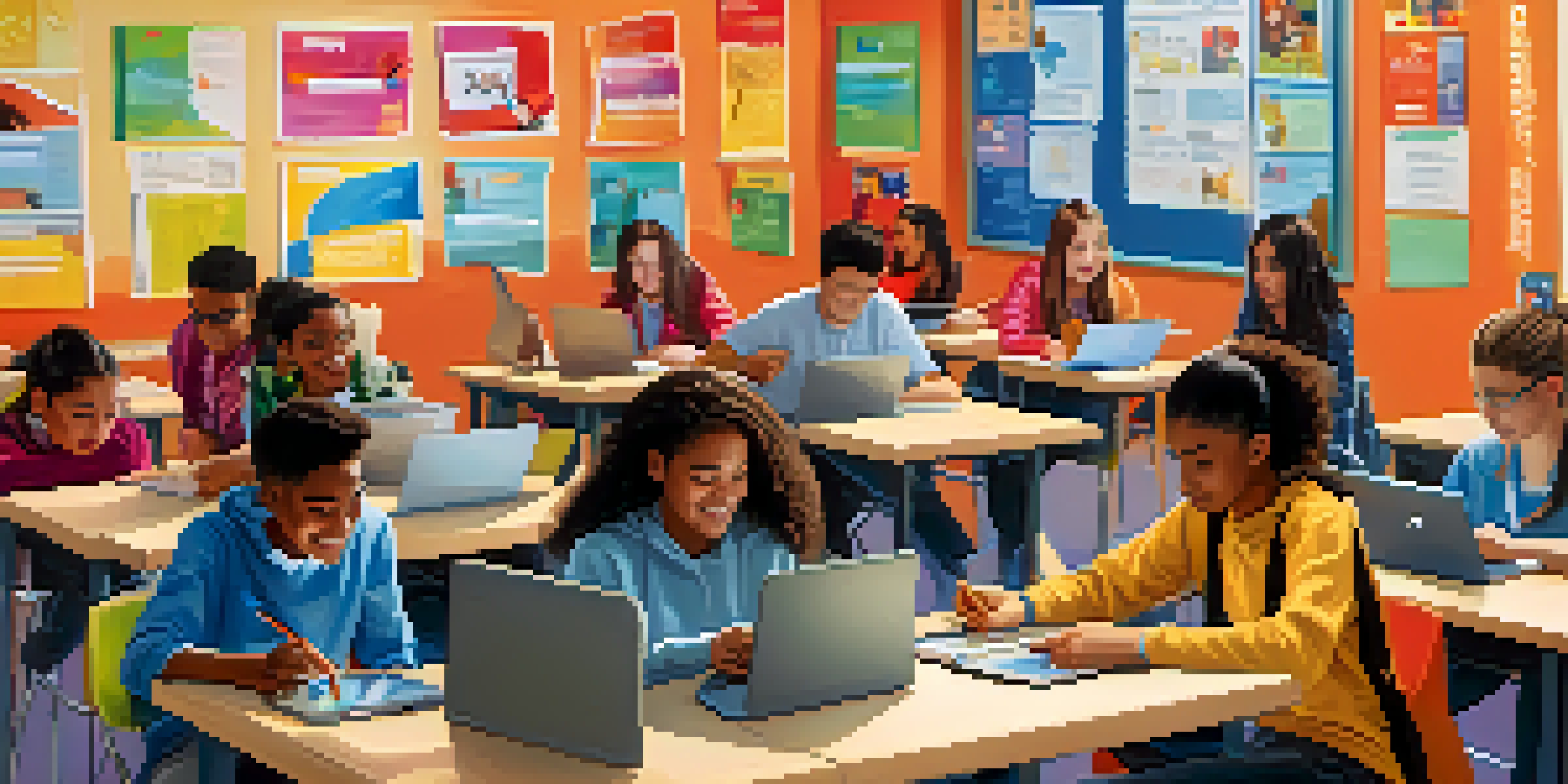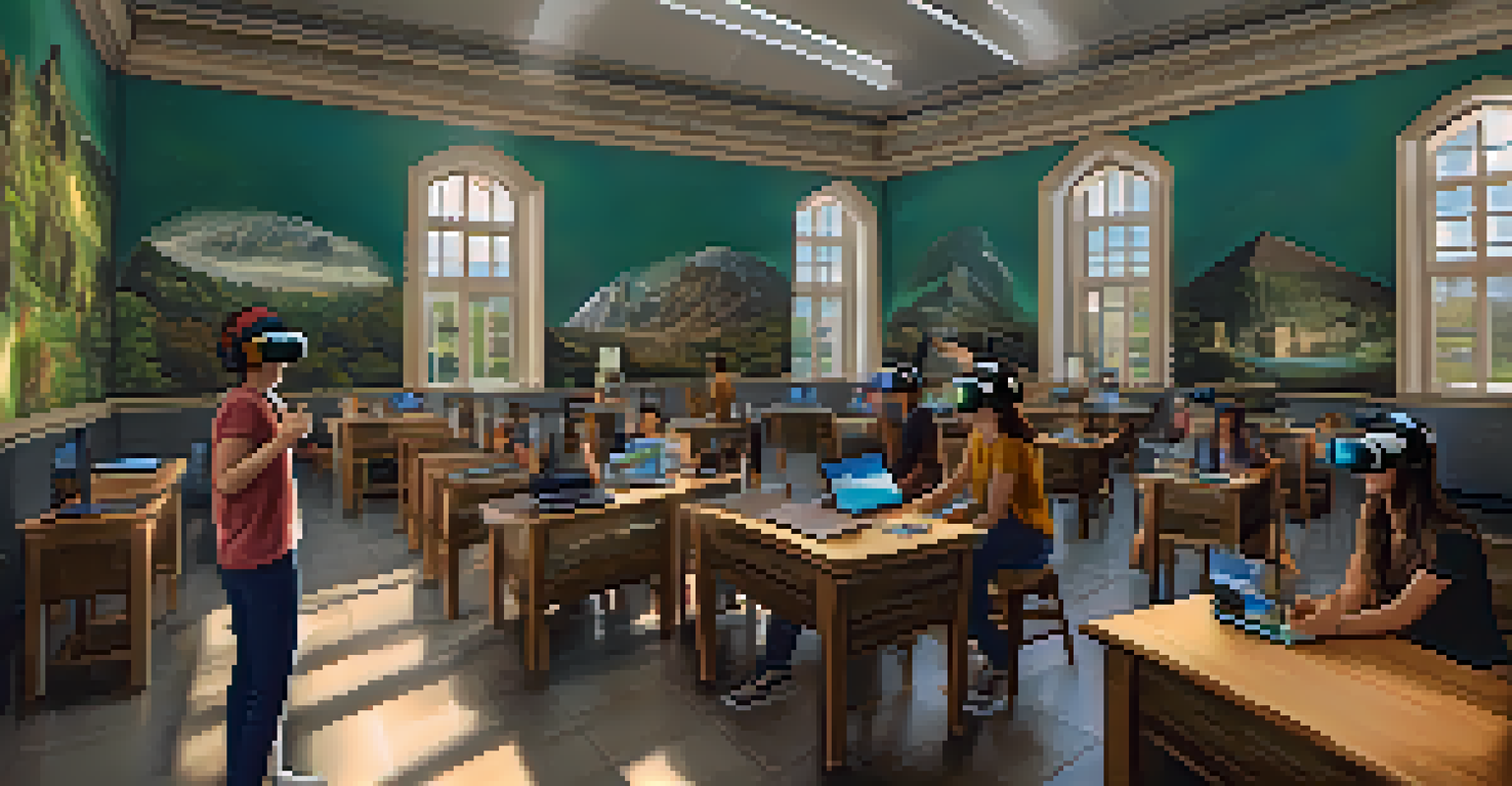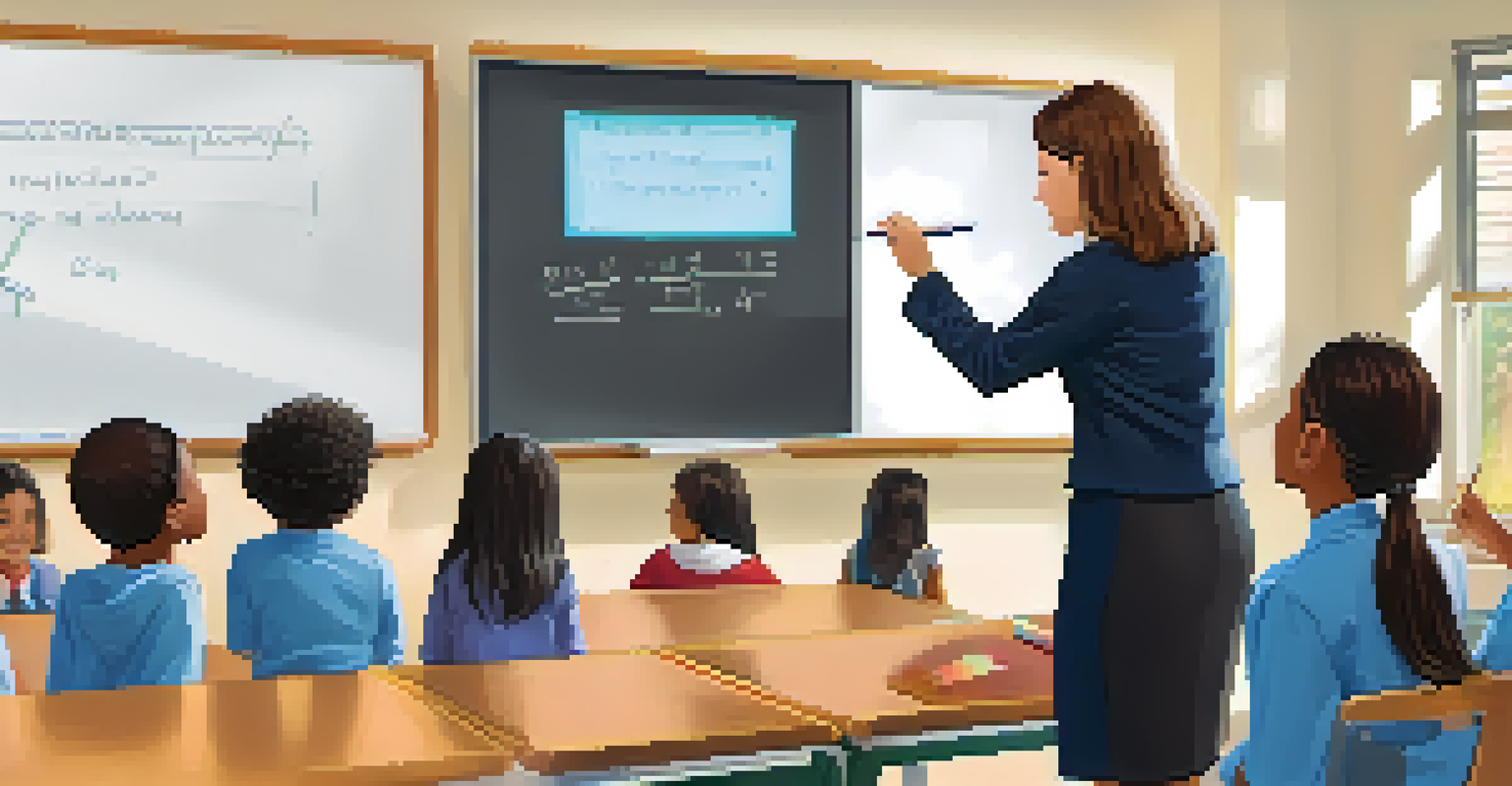The Role of Technology in Enhancing Student Engagement

Understanding the Importance of Student Engagement
Student engagement is crucial for effective learning. It encompasses the emotional, behavioral, and cognitive involvement of students in the educational process. When students are engaged, they are more likely to retain information and develop a love for learning.
Engagement is the key to unlocking the potential of every student.
Research shows that engaged students perform better academically. They participate actively in discussions, collaborate with peers, and are motivated to complete their assignments. This leads to higher achievement levels and improved outcomes in their educational journey.
In today's digital age, educators are recognizing the need to enhance student engagement through innovative methods. By integrating technology into the classroom, teachers can create dynamic learning experiences that capture students' attention and foster a deeper understanding of the material.
How Technology Facilitates Interactive Learning
Interactive learning is a key aspect of student engagement, and technology plays a vital role in making it happen. Tools like smartboards, interactive simulations, and educational apps allow students to participate actively rather than passively receiving information.

For example, a science teacher might use a virtual lab simulation to let students conduct experiments in a safe environment. This hands-on approach encourages curiosity and experimentation, making learning more engaging and relevant to students' lives.
Engagement Boosts Learning Success
Active student engagement enhances retention and academic performance, leading to better educational outcomes.
Moreover, technology enables real-time feedback, which is essential for keeping students involved. When students can see their progress immediately, they are more inclined to stay motivated and invested in their learning.
The Power of Gamification in Education
Gamification is a powerful strategy that leverages game elements in non-game contexts to enhance student engagement. By incorporating challenges, rewards, and competition into the learning process, educators can make lessons more exciting and enjoyable.
Technology will not replace great teachers, but technology in the hands of great teachers can be transformational.
Imagine a history class where students earn points for completing quizzes or participating in discussions. This not only motivates students to engage with the material but also fosters a sense of achievement and community among peers.
Gamification taps into students' natural desire for play and competition, making learning feel less like a chore and more like a fun activity. This shift in perspective can lead to improved attendance, participation, and overall academic performance.
Personalized Learning Through Technology
Technology offers the incredible ability to personalize learning experiences for each student. With adaptive learning platforms, educators can tailor lessons to meet individual needs, allowing students to learn at their own pace.
For instance, a student struggling with math can receive additional resources and exercises specifically designed to address their weaknesses. This personalized approach fosters a supportive learning environment where every student feels valued and understood.
Technology Transforms Learning
Innovative tools like gamification and multimedia resources personalize education and cater to diverse learning styles.
As a result, students become more engaged in their learning journey. They see that their educational experience is tailored to them, which increases their motivation to participate actively and succeed.
Enhancing Collaboration with Digital Tools
Collaboration is a key component of student engagement, and technology enhances this aspect significantly. Digital tools like Google Workspace and Microsoft Teams allow students to work together seamlessly, regardless of their physical location.
For example, students can collaborate on group projects in real-time, sharing ideas and resources instantly. This not only builds teamwork skills but also encourages students to take ownership of their learning.
Furthermore, these tools promote communication and peer feedback, which are essential for deeper learning. When students can easily discuss and critique each other's work, they become more invested in their educational experience.
Utilizing Multimedia for Diverse Learning Styles
Every student has a unique learning style, and technology enables educators to cater to these differences through multimedia resources. Videos, podcasts, and interactive presentations can engage visual, auditory, and kinesthetic learners alike.
For instance, a literature teacher might use video clips to illustrate themes in a novel, while simultaneously providing podcasts that explore character analysis. This variety keeps students interested and helps them connect with the material on multiple levels.
Collaboration Enhances Participation
Digital tools facilitate teamwork and peer feedback, making students more invested in their learning experiences.
By incorporating diverse media, teachers can ensure that all students have the opportunity to engage with the content in a way that resonates with them. This inclusivity not only boosts engagement but also enhances overall comprehension.
The Role of Virtual Reality in Education
Virtual reality (VR) is an emerging technology that offers immersive experiences, making learning more engaging than ever before. With VR, students can explore historical sites, dive into the ocean, or even journey through the human body, all from their classroom.
Imagine a geography class where students can 'visit' different countries, experiencing the culture and environment first-hand. This hands-on approach fosters a deeper understanding and appreciation for diverse perspectives, making learning memorable.

Moreover, VR can spark curiosity and foster a sense of adventure in students. When they can visualize and experience concepts, their engagement levels soar, leading to a more impactful educational experience.